Description
Edge nodes do things like North/South routing, load balancing, DHCP, VPN, NAT among other things.
Key information
- VLAN 300 is management network.
- VLAN 63 is my edge TEP network.
- Edge01 – management ip 172.168.1.129 / TEP ip – 172.16.63.129-172.16.63.130
- Edge02 – management ip 172.168.1.130 / TEP ip – 172.16.63.131 – 172.16.63.132
- Edge03 – management ip 172.168.1.131 / TEP ip – 172.16.63.133 – 172.16.63.134
- Edge04 – management ip 172.168.1.132 / TEP ip – 172.16.63.135 – 172.16.63.136
High-Level steps
Step 1 – Deploy Edge.
Step 2 – Create an Edge cluster.
Deploy edge
Login to nsx-t manager > click system > expand fabric > click nodes > under edge transport nodes click ADD EDGE NODE
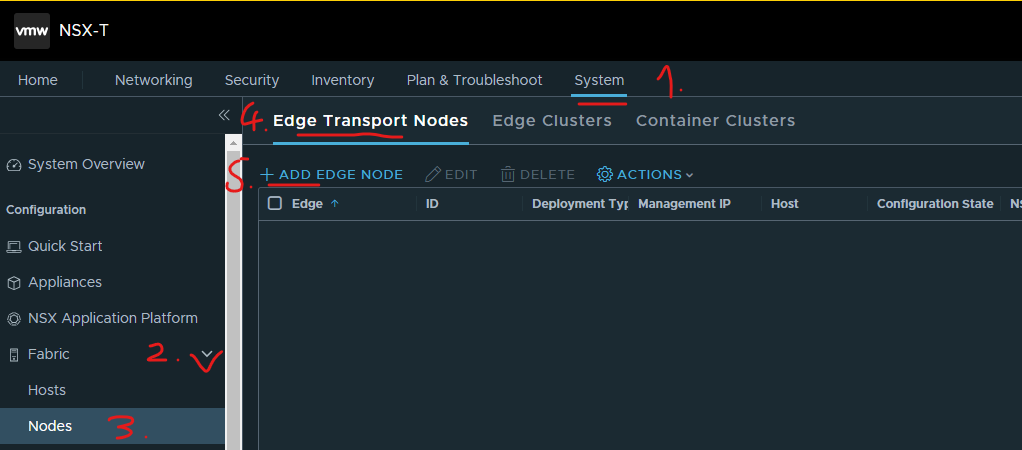
Put in a Name > FQDN of edge > Form factor small, I recommend medium for production > Click next
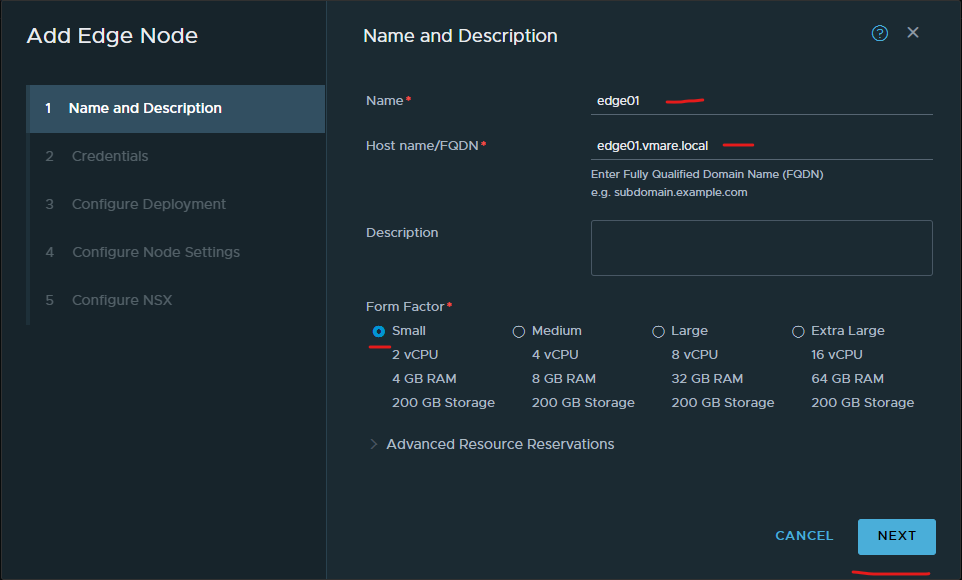
Put in complex passwords for your edge for admin, root and audit > click next
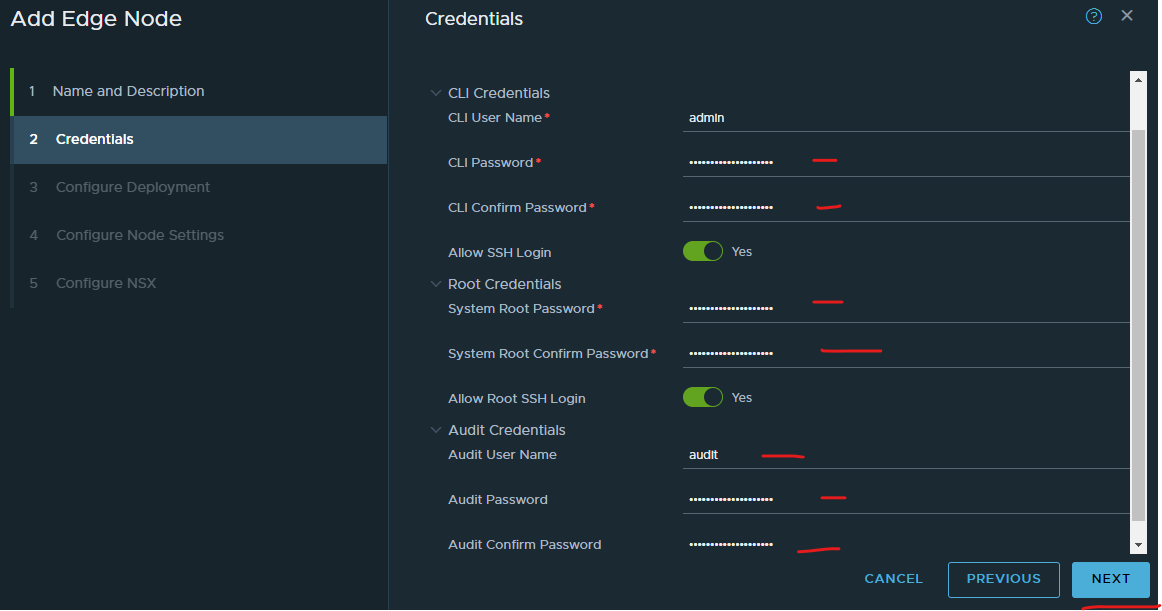
Select your computer manager (your vCenter) > select your cluster > select your datastore > click next
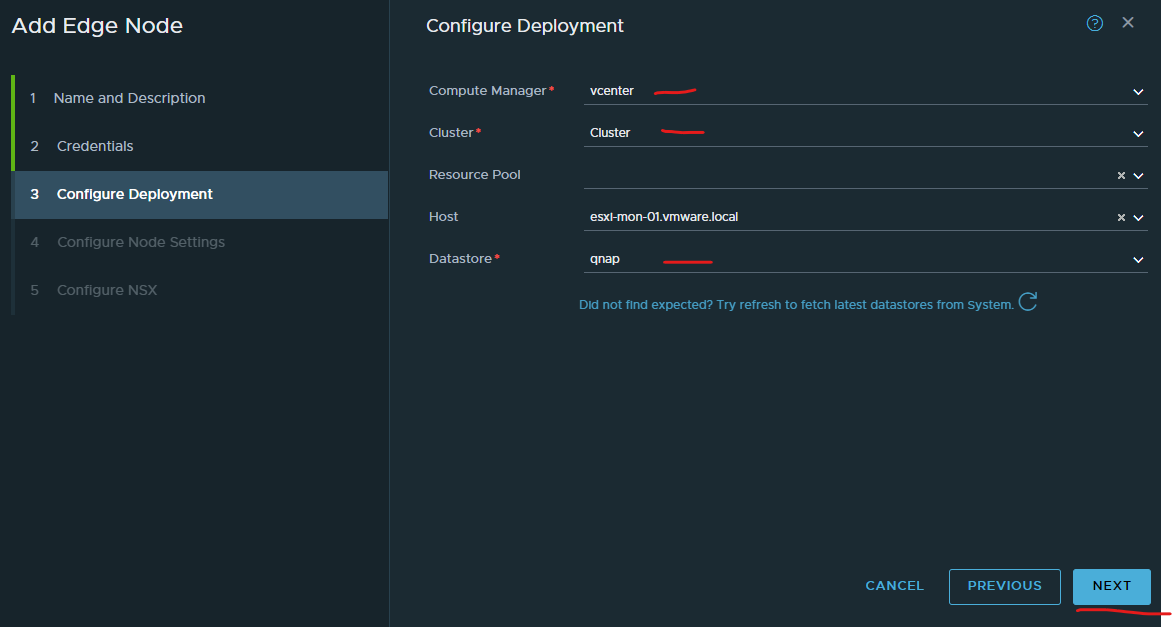
Enter management details of Edge
Click static > enter ip address with subnet mask > enter gateway > enter domain > enter dns server > enter ntp server > click next
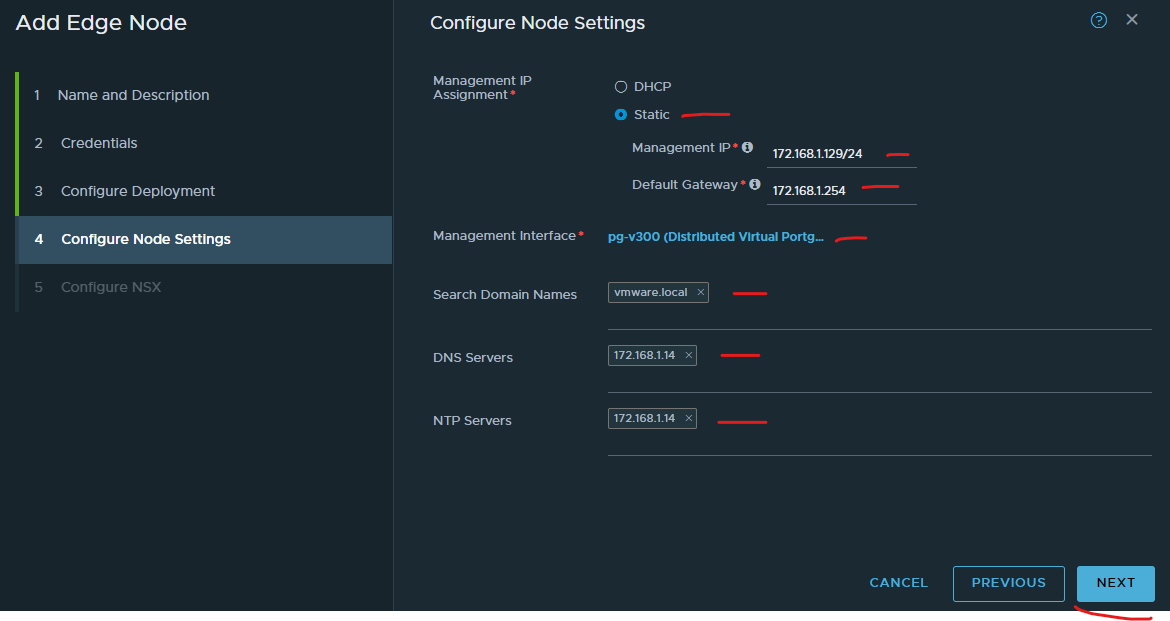
Add transport zone for vlan and overlay > select your edge uplink profile > select use static ip list for tep (I have two ip addresses for it) > enter tep gateway > enter tep subnet mask > scroll down

Select your port group your created before for your uplinks > click finish
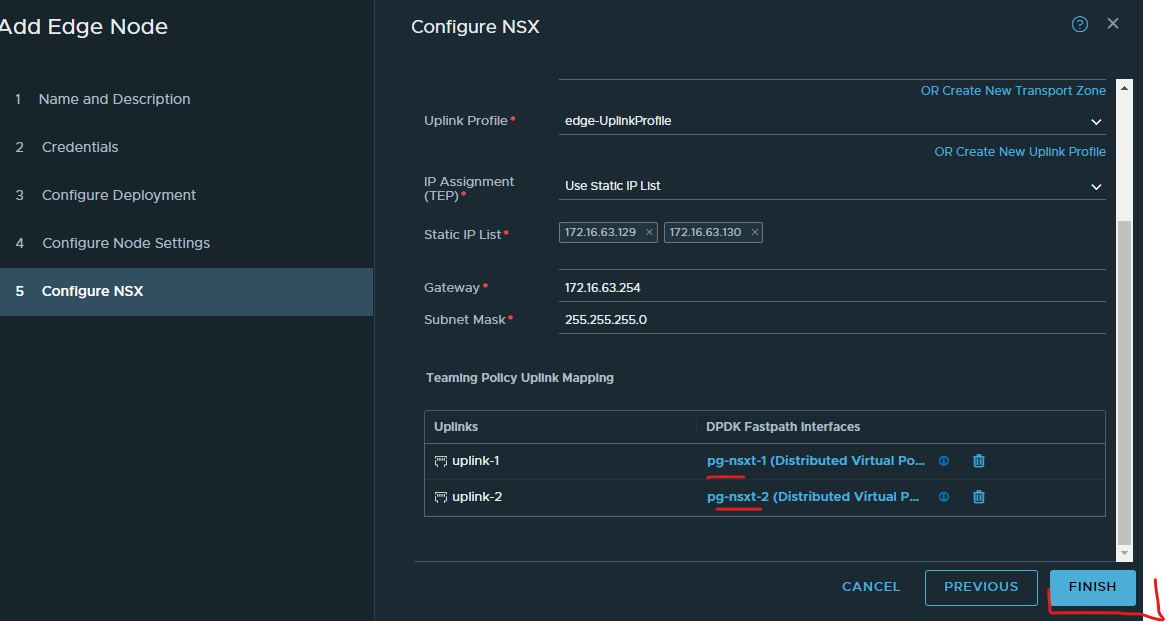


You should deploy a minimum of two edges for one edge cluster.
In my lab I will deploy four, with two edge clusters. I will use two of them further down the NSX-T series.

Add edge cluster
Click edge clusters > click ADD EDGE CLUSTER
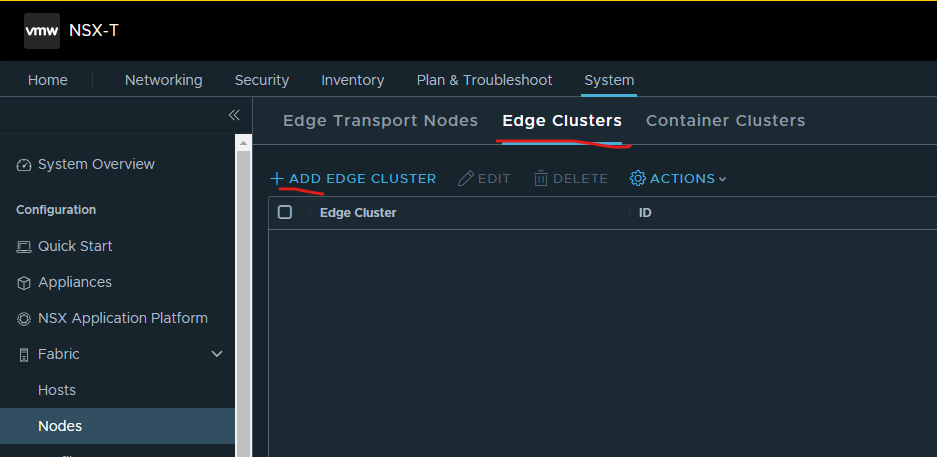
Give your cluster a name > select the edge members you want in the group > click the right arrow
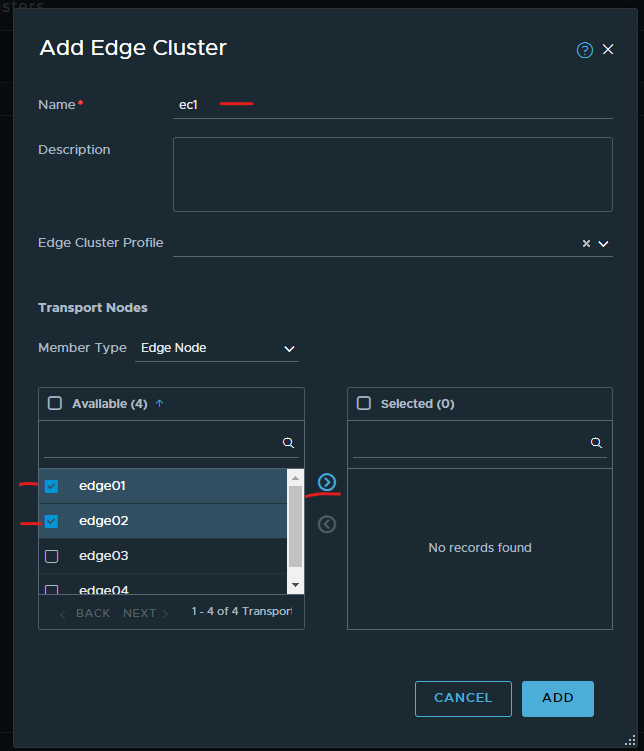
Click add
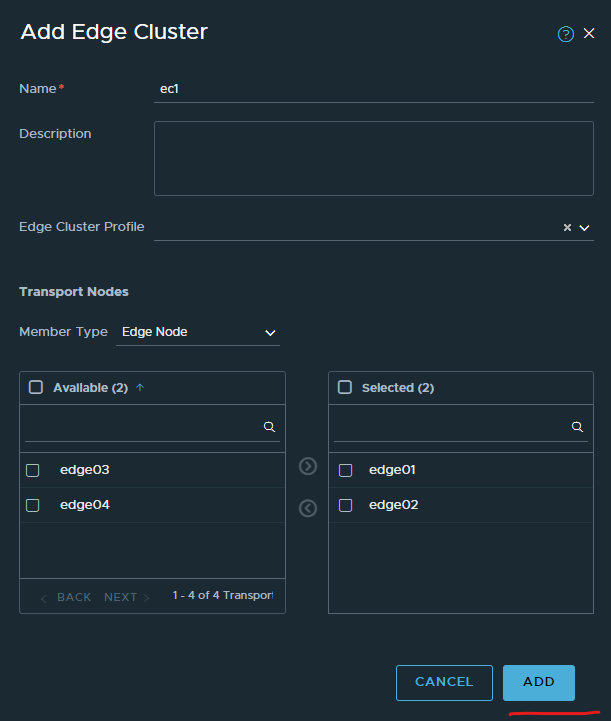
I will add my second edge cluster that I will use later down the track in the NSX-T series
Click ADD EDGE CLUSTER

Give your cluster a name > select the edge members you want in the group > click the right arrow.
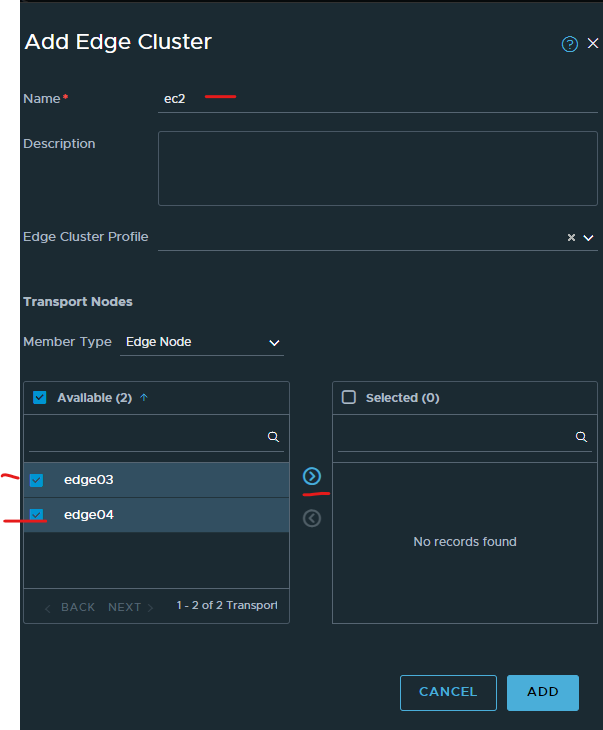
Click add
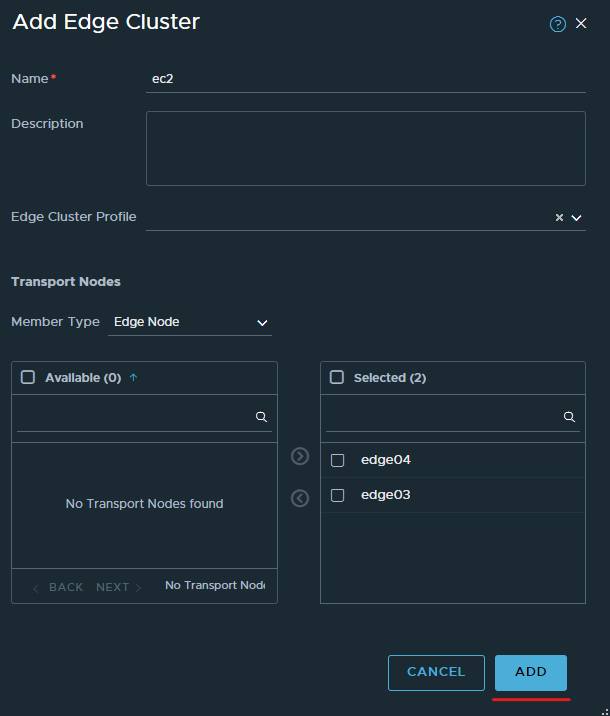
Done
